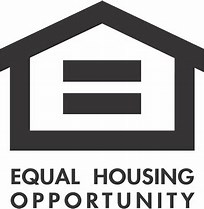Is It Hard To Get A Loan For A Rental Property?
A common myth about buying rental properties is that you need to be ultra-wealthy or have Wall Street-level resources to get started. That’s simply not true. In fact, owning rental properties has become more accessible than ever in the last decade. A big misconception is that you need a 20% down payment to purchase an investment property. While 20% is often required for certain loan products, there are numerous strategies to help you get started with less.
3/24/20255 min read


How to Buy Without a 20% Down Payment
A common myth about buying rental properties is that you need to be ultra-wealthy or have Wall Street-level resources to get started. That’s simply not true. In fact, owning rental properties has become more accessible than ever in the last decade. A big misconception is that you need a 20% down payment to purchase an investment property. While 20% is often required for certain loan products, there are numerous strategies to help you get started with less. Different loan products, such as a conventional loan or VA loans, have specific minimum down payment requirements that potential investors need to be aware of.
Understanding Investment Property Loans
What is an Investment Property Loan?
An investment property loan is a specialized mortgage designed for purchasing rental properties, such as single-family homes, condominiums, or apartment buildings. These loans cater specifically to real estate investors aiming to generate rental income or achieve long-term property appreciation. Unlike primary residence loans, investment rental property loans work often come with higher interest rates, larger down payments, and stricter credit score requirements. This is because lenders view investment properties as higher risk compared to owner-occupied homes. However, with the right strategy and understanding, these loans can be a powerful tool for building a robust rental property portfolio.
Types of Rental Property Loans
Real estate investors have several types of rental property loans to choose from, each with its own set of terms and requirements such as credit score, the down payment amount and debt-to-income ratio if you decide to go with a traditional lender that offers conventional or FHA loan:
Conventional Rental Property Loans: Offered by traditional lenders like banks and credit unions, these loans typically require a 20% down payment and a minimum credit score of 720. They are ideal for investors with strong credit and substantial cash reserves.
Private Money Loans: These loans are provided by private lenders, including individuals or companies, and often feature more flexible terms. They may have lower credit score requirements and shorter loan terms, making them suitable for investors who need quick financing.
Hard Money Loans: Short-term, high-interest loans used primarily for fix-and-flip projects or other short-term investment strategies. They are based on the property’s value rather than the borrower’s creditworthiness, making them accessible to investors with less-than-perfect credit.
FHA Loans: Insured by the Federal Housing Administration, these loans offer more lenient credit score requirements and lower down payment options, often as low as 3.5%. However, they are primarily designed for owner-occupied properties, so investors must live in one of the units if purchasing a multifamily property.
VA Loans: Guaranteed by the Department of Veterans Affairs, these loans offer favorable terms, including no down payment requirements, for eligible veterans and active-duty military personnel. They are an excellent option for those who qualify and wish to invest in rental properties.
By understanding the different types of rental property loans available, real estate investors can choose the best financing option to a rental property mortgage suit their investment strategy and financial situation.
Can You Buy a Rental Property with Less than the Minimum Down Payment?
The good news is yes, you can! Government-backed loans like FHA loans allow down payments as low as 3.5%, making it easier for first-time rental property buyers to get started. Keep in mind, though, that lower down payments may require private mortgage insurance (PMI), which can impact monthly payments and cash flow. FHA loans are primarily designed for owner-occupied properties, so you’ll need to meet specific requirements. Additionally, if your credit score is below 600, you may need to put down closer to 10%. FHA loans also cap the number of properties you can finance, meaning you’ll need other loan options as your rental portfolio grows.
What is a DSCR Loan and How Does It Work?
If you’re looking to scale your rental property investments, a DSCR loan (Debt Service Coverage Ratio loan) might be the solution. DSCR loans are tailored to real estate investors and focus on the property’s potential cash flow rather than the borrower’s personal income. Unlike traditional loans that consider the borrower's debt to income ratio, DSCR loans focus on the loan to value ratio and property's income potential. Here’s what lenders typically look for with DSCR loans:
1. DSCR Score: This measures whether the rental income will cover the property’s expenses, including the mortgage. A score above 1.0 is usually required. You can calculate your DSCR score using our handy tool [insert link].
2. Credit Score: Most lenders require a credit score of 660 or higher.
3. Minimal Documentation: Unlike traditional loans, DSCR loans typically don’t require tax returns or pay stubs, just basic documents like projected rental income, homeowner’s insurance, and a copy of the lease agreement (if applicable).
DSCR loans are ideal for long-term rentals and even Airbnb properties, helping you grow your portfolio quickly and easily.
Alternative Down Payment Options
House Hacking
House hacking is a savvy strategy that allows real estate investors to reduce their down payment requirements while building their rental property portfolio. The concept involves purchasing a multifamily property, such as a duplex, triplex, or fourplex, and living in one of the units while renting out the others. By occupying one of the units, investors can have monthly income and often qualify for lower down payment options, such as an FHA loan with as little as 3.5% down.
This approach not only minimizes upfront costs but also helps cover the mortgage payments through rental income from the property taxes other units. Additionally, living on-site allows investors to manage the property more effectively and address any issues promptly. House hacking is an excellent way for new investors to enter the world of real estate investing, build equity, and generate passive income with a smaller initial investment.
By leveraging strategies like house and portfolio loan hacking, real estate investors can overcome the barrier of high down payments and start growing their rental property portfolio with confidence.
What About Fix-and-Flip Loans?
For investors looking to buy and rehab properties before renting them out, fix-and-flip loans are another option. Fix-and-flip loans are a form of investment property financing that offers flexibility but also comes with certain risks. These short-term loans allow you to purchase a property with as little as 5% down and can even finance up to 100% of the renovation costs. Once the property is rental-ready, you can refinance into a more affordable long-term rental loan, such as a DSCR loan. The key is to act quickly—rehabbing the property, securing tenants, or determining market rent ensures you can transition smoothly into a rental loan.
Advantages of DSCR Loans vs. FHA Loans
While FHA loans are great for those starting out, they come with limits, such as the interest rates, restrictions on the number of properties you can own and more stringent underwriting criteria. On the other hand, DSCR loans offer the following benefits:
- Simpler, faster approval process with minimal paperwork.
- Focus on the property's cash flow rather than your personal income.
- Flexibility for both short-term rentals (Airbnb) and long-term rentals.
- Ability to grow your portfolio without being capped by FHA requirements.
Additionally, bridge loans, often used for quick property purchases, can complement DSCR loans by providing short-term funding while you prepare the property for rental.
Start Growing Your Rental Property Portfolio Today
The myth that you need a 20% down payment to buy a rental property is just that—a myth. With options like FHA loans, DSCR loans, and fix-and-flip financing, everyday people can break into the world of real estate investing. Whether you’re a home equity loan, buying your first rental or scaling a portfolio, Cape Henry Capital is here to guide you every step of the way. Our team has decades of experience helping investors secure the right financing options for their needs. Working with mortgage brokers can provide access to a variety of lending options and help find the most suitable deals.
Ready to take the next step? Contact Cape Henry Capital today and learn how you can use DSCR loans or other financing options to achieve your real estate goals. And don’t forget, DSCR loans are perfect for Airbnb properties too. [Click here to learn more!]
By using the right strategies and tools, you can confidently start building passive income through rental properties, even without a 20% down payment. Let us help you turn your goals into reality!
Tailored loans for real estate investors.
info@capehenrycapital.com
p. 757-267-9495
© Cape Henry Capital, LLC. 2023 All Rights Reserved. NMLS # 2383447.
Capehenrycapital.com is a website operated Cape Henry Capital, LLC, a Delaware limited liability company (“Cape Henry Capital”). By accessing this site and any pages thereof, you agree to be bound by our terms of use and privacy policy. The use of this website does not constitute an application for a mortgage loan or an offer by Cape Henry Capital to lend.
Cape Henry Capital is a mortgage broker and not a lender. Cape Henry Capital is licensed in CO,FL,GA,PA,SC,TX. Please visit www.nmlsconsumeraccess.org for more licensing information.
Mortgage loan products referenced in this website are offered to qualified borrowers for business or commercial purposes only and may be secured by non-owner-occupied properties only.
Origination fees and other fees may apply. Financing is subject to certain restrictions and requirements including, but not limited to, due diligence, credit evaluation, and approval of the subject property. To qualify, borrowers must meet underwriting requirements. Not all borrowers will qualify and not all borrowers that qualify will receive the lowest rate. The actual loan rate and terms depend on a variety of factors. Actual rates, terms, and conditions are subject to change from time to time without notice.
Cape Henry Capital’s principal business address is 500 Studio Drive, Suite 101, Virginia Beach, VA 23452


500 Studio Drive, Ste 101 Virginia Beach, VA 23452


